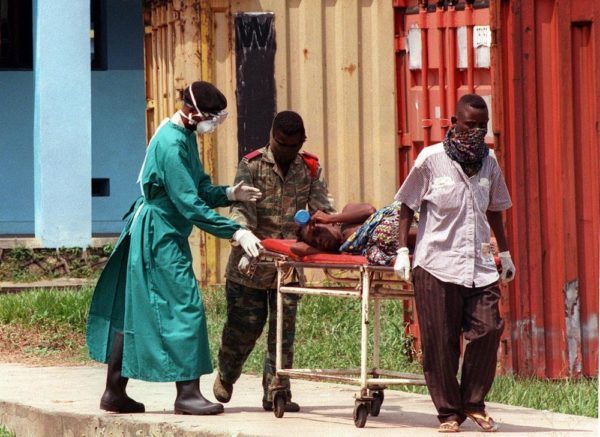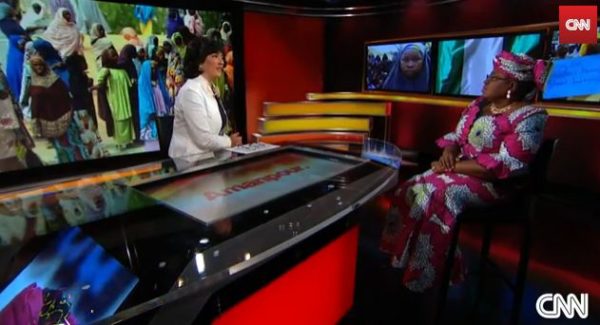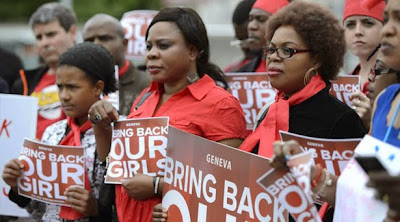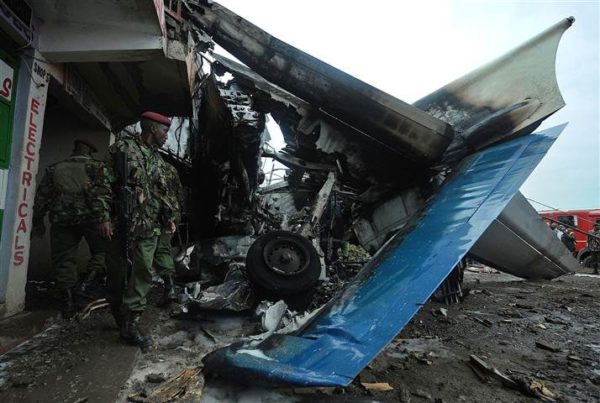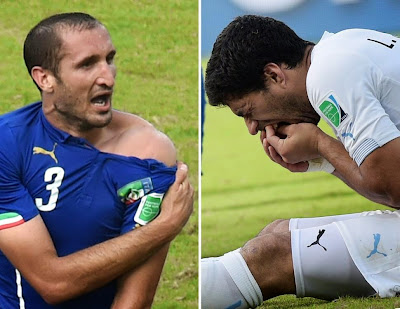So We Should Be Grateful To Sani Abacha?
Former Head of State, Gen. Sani Abacha, unwittingly did Nigeria a big
favour regarding our democracy. On May 29, 2014 Nigeria celebrated its
15 years of unbroken democracy in the Fourth Republic, which is about
three times longer than the longest period of democracy we had had
hitherto. If not for Abacha, this could not have been possible.
The First Republic had lasted five years and three and half months. The
Second Republic lasted three years and exactly three months. That showed
retrogression. After many postponements about handing over to the
civilians, the Third Republic kicked off in a peculiar way: Gen. Ibrahim
Babangida conducted governorship and legislative elections while he was
still ruling the nation. That experiment, which started in 1991, was
supposed to culminate in the conduct of the presidential election in
1993 and final handover to a democratic government.
Eventually, the presidential election held on June 12, 1993 was
peaceful, free and fair, according to the reports of all observers. The
electoral body began a state-by-state release of the result as collation
was concluded in each state. Chief M.K.O. Abiola of the Social
Democratic Party was ahead, winning in states which were assumed would
be won by his opponent, Alhaji Bashir Tofa of the National Republican
Convention. Then like a joke, the release of the results was suspended.
While Nigerians were wondering what Babangida’s plan was, he announced
the annulment of the election on June 23, 1993, to the consternation of
most people.
According to Babangida: “These steps were taken to save our judiciary
from being ridiculed and politicised locally and internationally.”
It was obvious that the action was crisis-prone. Reacting to that
infamous annulment, Nobel laureate, Prof. Wole Soyinka, had said: “A
very tiny but powerful cabal is toying with the future of our nation.
Any further delay in making the people’s verdict official is a
deliberate cultivation of chaos.”
‘Senior Advocate of the Masses’, Chief Gani Fawehinmi, issued a
statement, warning: “The nation is in danger. It is abundantly clear
that the military government is leading Nigeria into a political crisis
of immeasurable, chaotic proportions.”
Babangida gauged the mood of the nation and retired hurriedly with his
tails in between his legs, handing over to an unelected Interim National
Government, led by Chief Ernest Shonekan. A chain of events led to the
emergence of Abacha as the Head of State in a move which looked
premeditated. Abacha initially gave the impression that he would reverse
the annulment of the election. He bided his time, while gaining the
trust and support of the people. Once he had dug in, he showed that he
had his own plans, which did not include reversing the annulment or
leaving the stage soon.
With Abiola declaring himself president in 1994, Abacha bared his fangs.
Every day saw Abacha getting more brutal. People were arrested,
demonstrators were brutalised and shot at by security agencies,
newspaper houses were shut down at will, newspaper editions were
confiscated, media houses were bombed, bombs were exploding at different
places killing people, attempts were made on the lives of those
suspected to be opponents of Abacha’s regime, like Chief Abraham
Adesanya, the leader of the National Democratic Coalition, which was the
key opposition group, and Mr. Alex Ibru, the publisher of The Guardian
newspaper.
Some like Chief Alfred Rewane and journalist, Bagauda Kaltho, were not
lucky, as they were killed. People were framed up in fathom coups or as
“accessory after the fact of treason” and sentenced to death or life
imprisonment, including Gen. Shehu Musa Yar’Adua, who died in prison;
Gen. Olusegun Obasanjo, former Head of State; Mr. Shehu Sani, a human
rights activist; Mrs. Chris Anyanwu, publisher of The Sunday Magazine.
Many Nigerians fled into exile for fear of being arrested, framed up, or
killed.
After the hanging of environmentalist and leader of the Movement for the
Survival of the Ogoni People, Mr. Ken Saro-Wiwa, on November 10, 1995,
Nigeria was sanctioned and isolated by many countries and groups. Rather
than make Abacha reduce his viciousness, it got him fiercer. The only
people who benefited from that global outcry were the purported coup
plotters like Obasanjo and accessories like Anyanwu whose death sentence
or life sentence was commuted to life imprisonment or 15 years
imprisonment respectively.
When Abacha finally announced the transition to civil rule with the
formation of five political parties, everybody heaved a sigh of relief
that he would soon leave the scene. But all the hope evaporated when the
five political parties began to name him their sole candidate one after
the other.
Abacha became like a bone across the throat. Nobody knew what else could
be done to ease him out. Nigerians resorted to prayers for divine
intervention.
That divine intervention came on June 8, 1998, when Abacha suddenly
died. Contrary to the respect Nigerians are known to accord the dead,
Nigerians broke into celebration across the nation.
A sticker by a group called Concerned Professionals captioned the mood
of Nigerians, at that time, towards military rule and dictatorship. The
sticker said: Never Again. That was the favour Abacha did to Nigerians
on democracy: He painted a horrendous picture of military rule that most
Nigerians would not like to experience again. He showed the military
dictatorship as financially reckless, morally bankrupt and managerially
incompetent of handling a nation.
Until Abacha, any time there was a misunderstanding between political
parties, the opposition parties would call for military takeover. It was
believed that the soldiers were not as corrupt as the politicians, nor
as managerially incompetent, nor as unpatriotic, nor as greedy. Even
though the military was known to be high-handed, it was believed that
their actions were motivated by the national interest.
But Abacha changed all that perception. It was obvious that his actions
were motivated by his will to cling to power, and that he did not care
whatever befell the nation in the process.
Many had rued Abiola’s non-inauguration as president. Looking back now
and judging by the trend, Abiola could not have lasted in office beyond
two years. The maximum he could have lasted was four years when he would
have re-contested for the presidency in 1997. Complaints would have
trailed his re-election and calls for military intervention would have
rented the air.
Following the trend, since the First Republic had lasted less than 6
years; and the Second Republic had lasted for about 4 years; the Third
Republic would have lasted for 2 years.
Nigerians are known for having short memories. Heroes soon become
villains and vice versa. Abiola would most likely have suffered such a
fate.
But the draconian regime of Abacha put the fear of living daylight into
Nigerians. Even though the short memory of Nigerians still makes some
people to occasionally praise the years of the military in governance,
thereby asking for their return, yet the brutality of Abacha has
continued to paint a terrible picture of military rule.
Those who lose election – no matter how below par the election is –
always complain but do not publicly ask for the intervention of the
military.
So, without meaning to, Abacha – supported by Babangida – had made our
democracy last longer than it had ever lasted since our Independence in
1960. Our democracy may not be meeting our expectations to the fullest,
but we must guard it jealously. No matter the shortcomings of democracy,
it is much better than military rule. But we must eschew politics of
suppression and intimidation or that of “If I can’t have it, let it be
destroyed.”
If our democracy had been unbroken since 1960, there might have been
brazenness from politicians, no doubt, but we would have been able to
fashion out an effective way of running the affairs of the state.
BY AZUKA ONWUKA